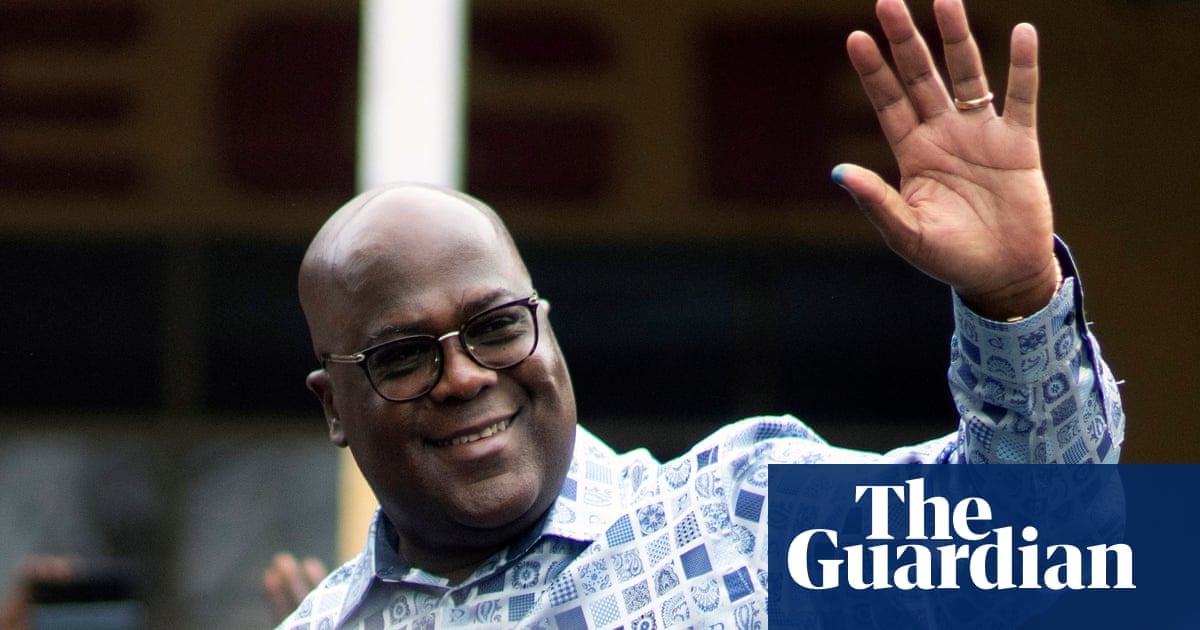
Uganda’s president, Yoweri Museveni, has won a sixth term in office, according to an official tally from Thursday’s election, as his main rival, Bobi Wine, alleged widespread fraud and rejected the result.
After one of the most turbulent election campaigns in Ugandan history, the electoral commission said Museveni had taken 59% of the vote and Wine 35%.
Wine, whose real name is Robert Kyagulanyi, had earlier accused Museveni of fabricating the results and called the poll “the most fraudulent election in the history of Uganda” while security forces surrounded his home. In a phone interview with reporters before the final results were announced, he urged citizens to reject Museveni’s victory, and said he was “under siege”.
The vote was fraught and many observers said it was hindered by the actions of state forces – an internet shutdown across the country – that undermined transparency.
In a national address on Saturday night, Museveni praised the integrity of the vote, saying “I think this may turn out to be the most ‘cheating free’ election since 1962,” and further promising to improve access to education and raise living standards.
Amid reports of protests in the capital he warned: “If anyone dares to disrupt our peace, we will deal with him or her decisively.”
The results followed one of the most violent election campaigns in Uganda, which included killings, the arrest of campaigners and civil society groups and intimidation by the security forces. Ugandan authorities also shut down internet networks across most of the country. Turnout was 57%, the lowest since Museveni took office.
The election campaign had been seen by many in Africa as emblematic of a struggle between longtime ruling elites and a younger generation mobilising against them.
Museveni’s supporters were jubilant on Saturday, dancing to the news that the electoral commission had confirmed his victory.
His party, however, suffered significant loses. About 30 MPs, including many cabinet ministers and the vice-president, lost their seats, largely to candidates from Wine’s National Unity Platform (NUP).
“I want to thank Ugandans for having come out to decide who should lead us, I am so happy,” a secretary for the ruling National Resistance Movement, Justine Lumumba, said. “It hasn’t been easy.”
Museveni, 76, campaigned on his long experience and achievements in boosting healthcare and infrastructure and preserving conservative values, arguing that they made him the only figure able to deliver stability and progress.
Wine, 38, a singer turned politician, galvanised young Ugandans with his calls for political change and pledged to end what he called dictatorship and widespread corruption.
He said on Friday that he had video proof of voting fraud, and would share the footage as soon as internet connections were restored. Many observers criticised the internet blackouts for preventing efforts to monitor the vote.
The EU, UN and US had said they would not monitor the elections after many of their staff were denied accreditation.
In the run-up to Thursday’s election, the security forces cracked down on opposition candidates and their supporters. More than 50 people died in protests in November on one of the many occasions when Wine was arrested.
In addition to the internet blackout, the government banned all social media and messaging apps on Tuesday. Wine and his supporters often used Facebook to relay live coverage of his campaign.
Results in the parliamentary election, in which candidates were vying for 529 seats, are still coming in, but Ugandan media reported that 56 NUP candidates had won their races, while the Forum for Democratic Change (FDC), previously the largest opposition party, had so far won 34 seats.
The country’s vice-president, Edward Ssekandi, was among the senior ruling party MPs who lost their seats, according to the broadcaster NTV Uganda.
The FDC won 35 seats in the 2016 election, but the NUP had no seats in the previous parliament. Wine was elected as an independent and joined the party last year.












